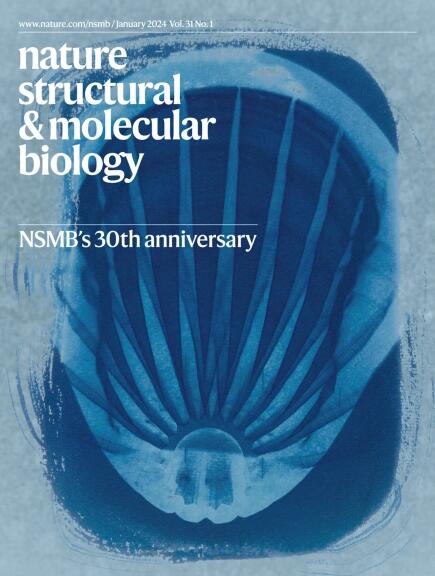Dissecting the mechanism of CRISPR–Cas technologies to design efficient biotechnologies
IF 12.5
1区 生物学
Q1 BIOCHEMISTRY & MOLECULAR BIOLOGY
引用次数: 0
剖析 CRISPR-Cas 技术的机制,设计高效的生物技术
CRISPR-Cas酶使我们能够以无与伦比的精度和效率操纵遗传密码。在这里,我将探讨支配CRISPR-Cas技术功能的结构和生物化学的复杂性,强调需要从机制上进行细致入微的理解,以克服当前的局限性,为在医学和研究中更安全、更有效地应用基因组编辑技术铺平道路。CRISPR-Cas酶已成为科学家和医生的分子手术刀,他们现在能够高效、精确地瞄准并操纵我们的遗传密码。在过去的十年中,科学家们利用这些酶的能力瞄准特定的基因组区域,首先是胞嘧啶和腺嘌呤碱基编辑,随后是质子和点击编辑技术1 ,将编辑范围扩大到反转突变、插入和缺失。基于 CRISPR 的技术使检测和治疗疾病、药物和基因筛选以及创造转基因作物变得前所未有的容易。
本文章由计算机程序翻译,如有差异,请以英文原文为准。
求助全文
约1分钟内获得全文
求助全文
来源期刊

Nature Structural & Molecular Biology
BIOCHEMISTRY & MOLECULAR BIOLOGY-BIOPHYSICS
CiteScore
22.00
自引率
1.80%
发文量
160
审稿时长
3-8 weeks
期刊介绍:
Nature Structural & Molecular Biology is a comprehensive platform that combines structural and molecular research. Our journal focuses on exploring the functional and mechanistic aspects of biological processes, emphasizing how molecular components collaborate to achieve a particular function. While structural data can shed light on these insights, our publication does not require them as a prerequisite.
 求助内容:
求助内容: 应助结果提醒方式:
应助结果提醒方式:


